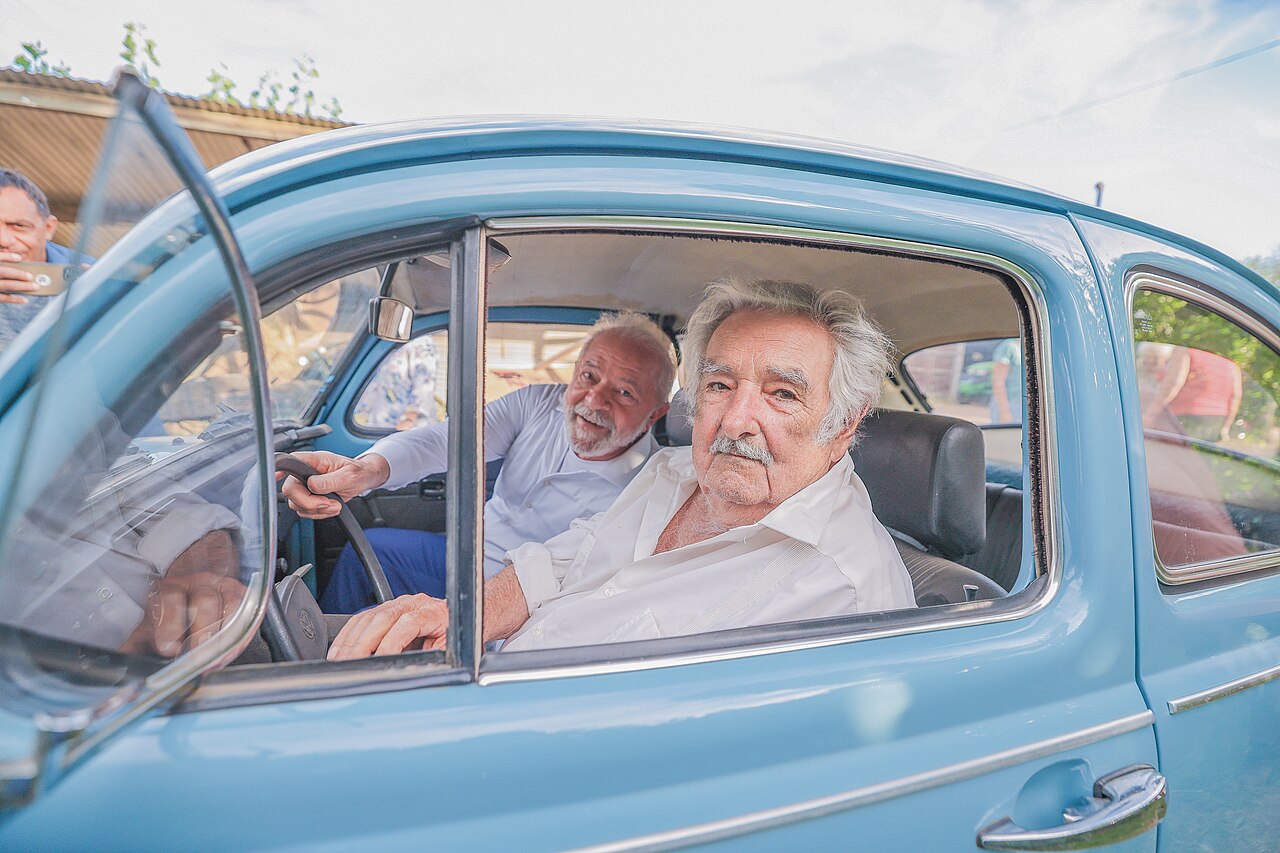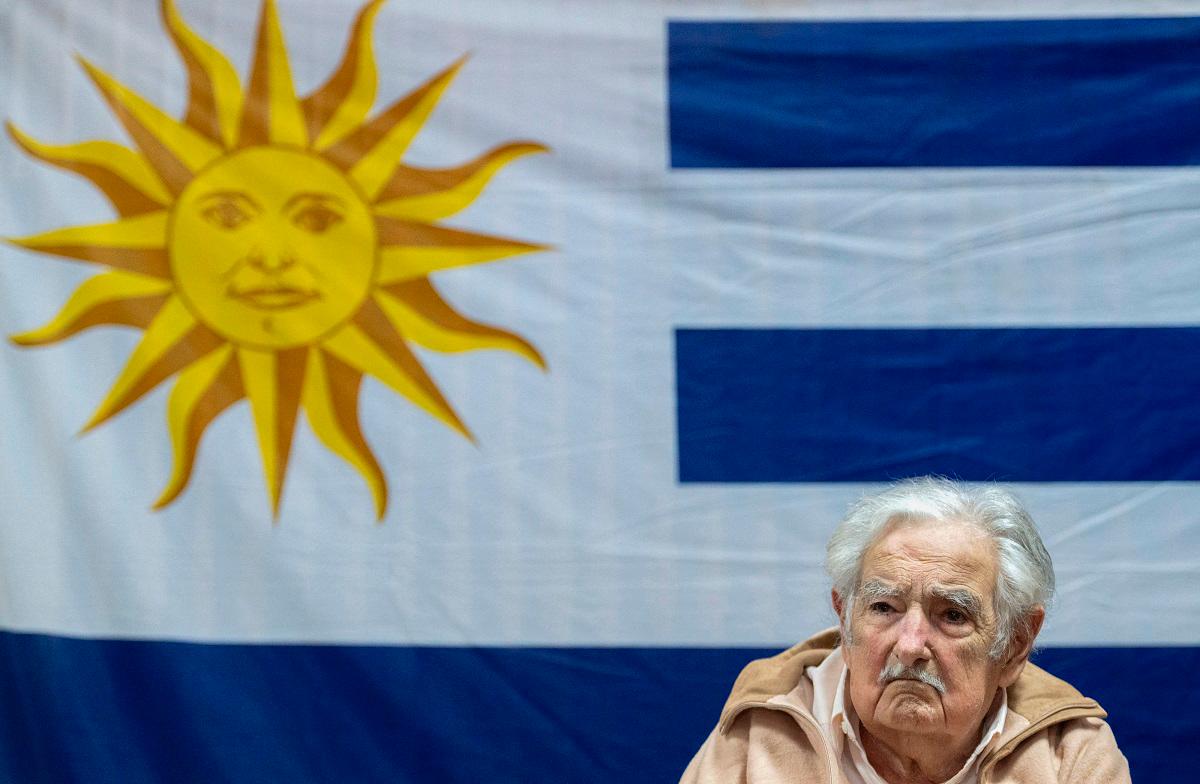The Last Honest Man,
José Mujica

"I'm not the poorest president. The poorest is the one who needs a lot to live. My lifestyle is a consequence of my wounds. I'm the son of my history."
José "Pepe" Mujica died this week at 89, and with him went something that has become so vanishingly rare in our modern lives: genuine humility.
They called him the world's poorest president.
Mujica was, of course, nothing of the sort. Poor, I mean. He was arguably the richest man who ever held high office, possessed of that particular kind of wealth that cannot be stolen, taxed, or inflated away: the profound satisfaction of knowing exactly who he was and precisely what he needed. Which, as it happened, wasn't very much at all.
![]()
His CV reads like something dreamed up by a novelist with an overactive imagination. Urban guerrilla with the charmingly named Tupamaros in the 1960s, bank robber, kidnapper, general disturber of the bourgeois peace. Shot six times, imprisoned for 14 years, tortured with the sort of medieval enthusiasm that Latin American dictatorships brought to the art of breaking men's spirits.
Most people emerge from such experiences either dead or mad. Mujica emerged with the kind of crystalline clarity about human nature that can only be purchased with enormous suffering. He understood, with the particular wisdom of the thoroughly broken and carefully mended, that violence begets violence, that hatred is a luxury no sensible person can afford, and that the only revolution worth having is the one that happens inside your own skull.
"What we didn't realise," he reflected with the rueful honesty of a man who had learned his lessons in blood, "was that when you play with fire, you may unleash forces that you can't control."
![]()
When Uruguay elected this flower farmer to the highest office in 2009, they got rather more than they bargained for. Instead of the usual presidential theatre, with the motorcades, the palaces, the carefully choreographed displays of power designed to convince that they are better than us - Mujica gave them something unprecedented. Authenticity.
He donated 90 percent of his salary to charity, continued to drive his battered Volkswagen Beetle, and rejected the presidential palace in favour of his ramshackle farm where he grew flowers and lived with a three-legged dog. This wasn't political showmanship; this was a man who had discovered that happiness is not a destination but a way of travelling.
"I'm not a poor president," he insisted, with the patience of someone accustomed to explaining obvious truths. "Poor is someone who needs a lot. I need little to live, because I live the way I lived long before I became president."
![]()
During his presidency, Mujica legalised abortion, same-sex marriage, and marijuana, not because it was politically expedient (it wasn't), but because he possessed that rarest of political qualities - the ability to distinguish between what was popular and what was right.
His argument for drug legalisation was particularly elegant - take the business away from criminals and give it to civil servants. Hardly revolutionary, more like common sense.
But perhaps his greatest achievement was simply demonstrating that it is possible to wield enormous power without becoming a monster. In an age when politicians accumulate authority like magpies collect shiny objects, Mujica showed that true strength lies in knowing when you have enough.
Cancer claimed him in the end, esophageal cancer, spreading to his liver. Even facing death, he remained magnificently himself. "I'm doomed, brother. This is as far as I go," he told reporters, choosing to die on his own terms.
![]()
José Mujica understood something that has been forgotten in our age of manufactured outrage and performative politics: that the highest form of sophistication is simplicity, that the greatest luxury is freedom from want, and that the only wealth worth having is the kind that cannot be taken away.
They called him the poorest president, but he was richer than Caesar. He knew the secret that eludes most of our leaders: that power is not something you accumulate, but something you give away.
In parting, I leave you with this last interview with Pepe. In a world drunk on wealth and status, José Mujica stayed magnificently sober.
José "Pepe" Mujica died this week at 89, and with him went something that has become so vanishingly rare in our modern lives: genuine humility.
They called him the world's poorest president.
Mujica was, of course, nothing of the sort. Poor, I mean. He was arguably the richest man who ever held high office, possessed of that particular kind of wealth that cannot be stolen, taxed, or inflated away: the profound satisfaction of knowing exactly who he was and precisely what he needed. Which, as it happened, wasn't very much at all.

His CV reads like something dreamed up by a novelist with an overactive imagination. Urban guerrilla with the charmingly named Tupamaros in the 1960s, bank robber, kidnapper, general disturber of the bourgeois peace. Shot six times, imprisoned for 14 years, tortured with the sort of medieval enthusiasm that Latin American dictatorships brought to the art of breaking men's spirits.
Most people emerge from such experiences either dead or mad. Mujica emerged with the kind of crystalline clarity about human nature that can only be purchased with enormous suffering. He understood, with the particular wisdom of the thoroughly broken and carefully mended, that violence begets violence, that hatred is a luxury no sensible person can afford, and that the only revolution worth having is the one that happens inside your own skull.
"What we didn't realise," he reflected with the rueful honesty of a man who had learned his lessons in blood, "was that when you play with fire, you may unleash forces that you can't control."

When Uruguay elected this flower farmer to the highest office in 2009, they got rather more than they bargained for. Instead of the usual presidential theatre, with the motorcades, the palaces, the carefully choreographed displays of power designed to convince that they are better than us - Mujica gave them something unprecedented. Authenticity.
He donated 90 percent of his salary to charity, continued to drive his battered Volkswagen Beetle, and rejected the presidential palace in favour of his ramshackle farm where he grew flowers and lived with a three-legged dog. This wasn't political showmanship; this was a man who had discovered that happiness is not a destination but a way of travelling.
"I'm not a poor president," he insisted, with the patience of someone accustomed to explaining obvious truths. "Poor is someone who needs a lot. I need little to live, because I live the way I lived long before I became president."

During his presidency, Mujica legalised abortion, same-sex marriage, and marijuana, not because it was politically expedient (it wasn't), but because he possessed that rarest of political qualities - the ability to distinguish between what was popular and what was right.
His argument for drug legalisation was particularly elegant - take the business away from criminals and give it to civil servants. Hardly revolutionary, more like common sense.
But perhaps his greatest achievement was simply demonstrating that it is possible to wield enormous power without becoming a monster. In an age when politicians accumulate authority like magpies collect shiny objects, Mujica showed that true strength lies in knowing when you have enough.
Cancer claimed him in the end, esophageal cancer, spreading to his liver. Even facing death, he remained magnificently himself. "I'm doomed, brother. This is as far as I go," he told reporters, choosing to die on his own terms.

José Mujica understood something that has been forgotten in our age of manufactured outrage and performative politics: that the highest form of sophistication is simplicity, that the greatest luxury is freedom from want, and that the only wealth worth having is the kind that cannot be taken away.
They called him the poorest president, but he was richer than Caesar. He knew the secret that eludes most of our leaders: that power is not something you accumulate, but something you give away.
In parting, I leave you with this last interview with Pepe. In a world drunk on wealth and status, José Mujica stayed magnificently sober.
27 May 2025